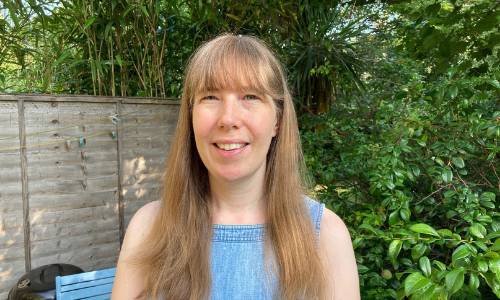A step forward for older women’s rights
The 69th session of the United Nations (UN) Commission on the Status of Women marked 30 years of the Beijing Platform for Action, the global framework for advancing gender equality. As the session comes to a close, it represents a key moment for older women’s rights. Our Senior Policy Advisor, Kate Horstead, explains why.
We’ve seen a big step forward for older women at this year’s main global conference on women’s rights, the UN Commission on the Status of Women (CSW), with a long-awaited decision for older women to be a focus of next year’s conference, CSW70.
After years of advocacy to ensure older women are properly included in international talks and commitments on gender equality, a key resolution has been passed that could herald a vital step change in the way that older women’s rights and voices are understood.
In the context of UK Government aid cuts and the wider rollback on women’s rights by globally powerful decision-makers, it is more urgent than ever before that older women’s voices are recognised and included.
This year, it was also proposed that ageing and demographic issues are recognised as an ‘emerging issue’ in future CSWs. Despite older women making up 55 per cent of the world’s 2 billion older people by 2050, global ageing is a context that is often missing from all strands of UN policy.
To understand women’s needs and rights, we must look across their life experiences, not just at their current age, by taking a ‘life course approach’. We are pleased that the UK Government has increased the visibility of older women in its own work, championing language around the life course. The Government’s Office for Equality and Opportunity hosted an event at this year’s CSW focused on the empowerment of mid-life and older women, and Age International CEO, Alison Marshall, spoke on the panel.
The breadth of the Beijing Platform for Action agreed in 1995 meant a vast range of themes affecting women’s lives were discussed at CSW. The Political Declaration agreed by member state governments this year made direct reference to the need to ensure the ‘equal enjoyment of all human rights and fundamental freedoms by all women and girls throughout their life course’. It also refers to ‘the multiple and intersecting forms of discrimination, marginalisation and vulnerability’ that older women, among other groups, face.
Within the broad agenda of events and in the detail of discussions, it was possible to detect a growing hum of support for the rights of older women from UK delegates.
There was also increased engagement at this year’s CSW from UK Parliamentarians, who were galvanised by the voices of three older women activists, including Ambassador Gertrude Ibengwé Mongella, General Secretary and Chair of the Beijing Conference in 1995, Emma Kaliya, Chair of NGO Gender Coordination Network in Malawi, and Paulette Metang from Acamage in Cameroon. They addressed key issues such as older women’s access to pensions and unpaid care work. This highlighted the importance of hearing directly from older women about their experience.
Other events at CSW, including an event by the children’s humanitarian organisation UNICEF and the UK Foreign, Commonwealth and Development Office on social protection across the life course, drew much-needed attention to the vital contributions of older women to their communities, and the impact of enabling older women to access pensions.
However, with a new Special Envoy for Women and Girls, and a new Minister for International Development in place, we wait to see how far the UK Government and its partners will continue their engagement with the issues facing older women raised at the conference. Will they commit to embedding this critical focus on older women in their own ongoing work? We will be watching what the UK Government does next, and urging it to further the genuine participation of older women in the decisions that affect their lives, and to embed a life course approach into its renewed international commitments and plans.
In the face of tough decisions about priorities, it is crucial to recognise that older women play a vital role in the empowerment of all generations of women and girls.
Given the fast-changing international political landscape, we rely on the UK more than ever to show leadership globally in championing the rights and inclusion of older women with partner countries, UN agencies, and in supporting grassroots women’s rights organisations. Older women’s voices and experiences must be included in these efforts.
You can read more in our briefing paper about how older women are affected by the issues highlighted in the Beijing Platform for Action and how we can work together to ensure their rights are realised.
 Kate Horstead, Senior Policy Adviser, leads Age International’s policy and influencing on gender equality and climate change.
Kate Horstead, Senior Policy Adviser, leads Age International’s policy and influencing on gender equality and climate change.
Kate’s work focuses on developing the organisation’s thinking on how these areas interact with global population ageing, and building strategic relationships with civil society and Government stakeholders to gain support for older women’s inclusion in their policies and plans. She was formerly co-chair of the Gender and Development Network’s women’s economic justice working group, and is a core member of the UK Civil Society Women’s Alliance.
Will the UK Government champion older women?
Older women are fighting for their rights in the face of poverty, violence and humanitarian crises, yet they are at risk of being overlooked.
Older women and gender equality
Our policy briefing on gender equality sets out how civil society organisations, UN agencies and donor governments, including the UK Government, can advance older women’s rights and ensure they are heard.
